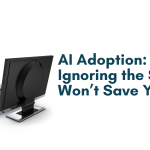Quick Take
AI advancements are rapidly encroaching on blue-collar professions once considered safe. While complete automation may take decades, the transformative potential is already reshaping industries, sparking debate over the future of human labor.
For years, the narrative suggested that blue-collar jobs—plumbers, electricians, and construction workers—were shielded from automation due to their hands-on nature and complexity. Yet recent technological breakthroughs challenge this assumption, as AI and robotics gradually replace specialized tasks across various trades.
The Automation Trend
Industries like construction and appliance repair are witnessing a paradigm shift. Prefabricated homes, for instance, streamline construction by arriving nearly complete, needing minimal human intervention. Appliance repairs, once a staple of skilled labor, now rely on diagnostics powered by AI, with entire modules replaced rather than repaired.
Even historically resistant roles like auto mechanics face disruption. Electric vehicles, such as Tesla models, demand less frequent servicing, while modular components allow for faster repairs with fewer specialized skills.
Modular Efficiency and the “Replace, Don’t Repair” Economy
AI’s push toward modular systems reflects a larger societal shift. Appliances, vehicles, and even homes are becoming easier to produce and maintain—but harder to fix by traditional standards. This evolution threatens the very foundation of repair-based economies, as seen in the dwindling presence of repair shops.
Adaptation vs. Automation
Some commentators argue that while automation simplifies routine tasks, it cannot replicate nuanced skills or adaptive judgment. Consider AI-guided smart glasses that assist in basic repairs—these tools empower users to tackle simple problems but fall short of replacing highly trained professionals.
Unique Human Roles
Certain jobs may endure due to human preference or regulatory constraints. For example:
• Home Renovation: Old or customized homes often require intricate fixes that automated tools cannot yet manage.
• High-End Trades: Premium craftsmanship remains valued, particularly among affluent consumers seeking bespoke solutions.
• Service-Oriented Professions: People often prefer human interaction in sectors like nursing and hospitality, where empathy and intuition are irreplaceable.
The Case for Slow Transformation
While the automation wave looms, some believe the transition will span decades rather than years. Rural areas and niche markets, for instance, may resist large-scale adoption due to cost barriers and logistical challenges. Similarly, regulatory oversight and consumer skepticism could delay widespread deployment.
Exponential Change or Gradual Evolution?
Exponential technological progress has the potential to accelerate automation beyond historical precedents. However, adoption rates may hinge on societal factors, such as the economic feasibility of AI systems and public acceptance of robots in human-centric roles.
Editor’s Note: Redefining Human Value in the Age of AI
The encroachment of AI into blue-collar work underscores a broader societal challenge: redefining the value of human labor. As automation reshapes industries, policymakers and businesses must proactively address displacement risks while fostering innovation.
Ultimately, the debate over blue-collar job security mirrors the larger conversation about AI’s role in shaping our future—whether it leads to widespread prosperity or deeper inequality will depend on how we choose to adapt.


